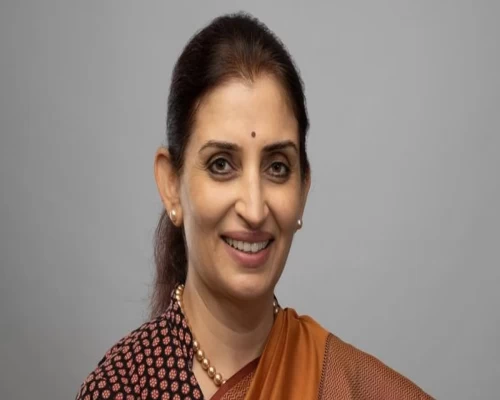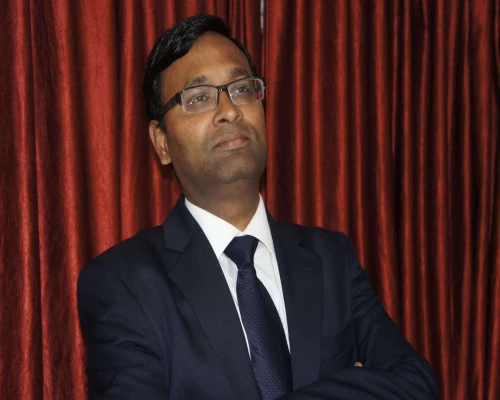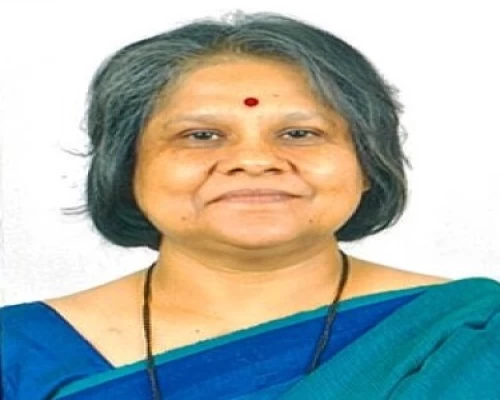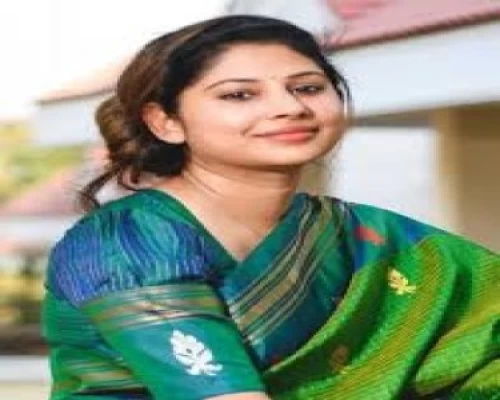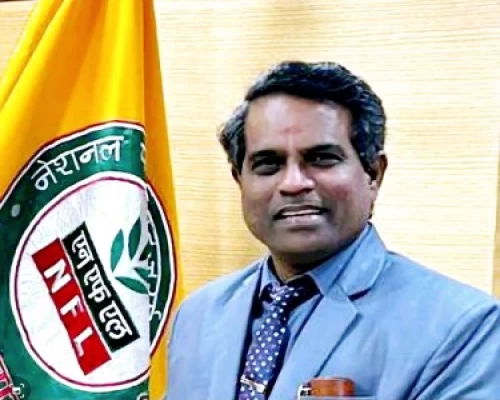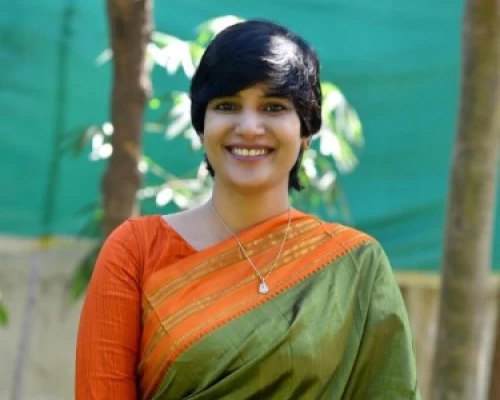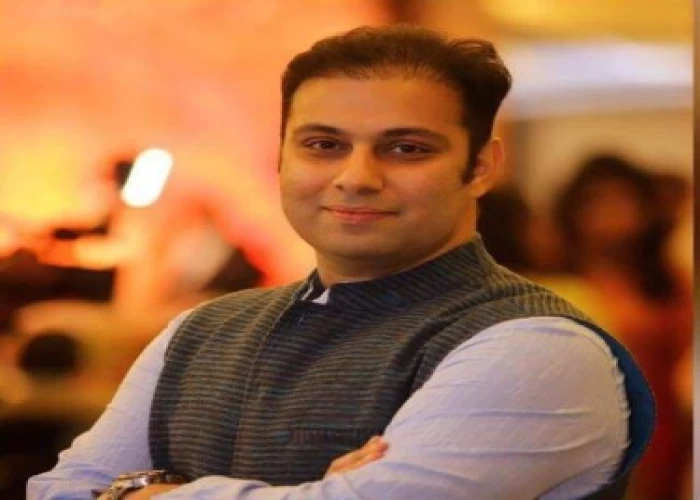
New Delhi: Meet dynamic Indian Administrative Service (IAS) officer of Rajasthan cadre Peeyush Samariya, who has served the State by holding many important positions including Managing Director (MD) of Rajasthan Urja Vikas Nigam Limited, Collector and District Magistrate, Dausa. He is known for his numerous initiatives especially in the field of education during the Covid-19 pandemic. In January 2022, he was appointed Collector and District Magistrate, Nagaur. In an exclusive interview with Bureaucrats India Editor-in-Chief Navneet Anand and Assistant Editor Vigya Dwivedi, Peeyush Samariya shares his vision on good governance, strategies for maintaining law and order, and his experiences in Civil Services. Read The Full Interview:
Being a graduate from IIT Bombay and Masters in Tax Law and Taxation, you have a strong academic background. How has academics helped you in cracking the Civil Services examination?
Earlier, the UPSC was meant to be for students of humanities background but times have changed. In my batch in 2014, there were 100 engineers and about 30 doctors. Students should never limit their aspirations as per their degrees. In fact, I feel that my academic experience at IIT Bombay has given me a lot of exposure, which helped me a lot in my professional arena. It proved to be of great help during the pandemic as well when I arranged online classes for students in Dausa.
You spoke about Dausa where you took many initiatives to reform the education system in Dausa. One such step was introducing smart classes in the district. How was the district equipped with hundred percent smart classes?
I joined as DM, Dausa in May 2020. Education was adversely affected by lockdown amid Covid-19 pandemic. It was a major challenge to address the needs of students. Students in rural areas did not have basic digital connectivity. To arrange online classes for them, we set up smart classes at ICT centres in schools where students could study their curriculum while following social distancing and other pandemic related protocols. This helped them to cover their academic courses on time.
As we all know, Rajasthan faces scarcity of water, especially in summers. As DM Dausa, you successfully launched the ‘Catch the Rain’ campaign in the district. Also, a rainwater harvesting system was introduced in all schools in Dausa. How was this achieved?
Rajasthan faces scarcity of water due to unavailability of much surface water and perennial rivers. The state largely depends upon ground water. Last few years have seen a change in rainfall patterns in the state with an increase in average rainfall. In Dausa, we thought about how to use this as an advantage. We made sure that all schools in the district have rainwater harvesting systems at their rooftops and have ‘tanks’ in basements. This helped schools to sustain water even in two to three good rainfalls. We arranged funds using various state and Central government schemes. The initiative was much appreciated by students and their parents.
Dausa was an active spot for Gurjar agitation in November 2020. How challenging was it for you to monitor law and order situations during that period?
Dausa has been an active spot for community and caste based agitations for many years. One reason is its close proximity to locations like Delhi, Jaipur, Agra and Bharatpur. I feel that maintaining law and order situation is the most important duty of any administration. The Gurjar agitation in 2020 was addressed by maintaining continuous communication with the agitators. We didn’t let agitations affect public life. We also need to listen to the aspirations of agitators and make sure that they are not devoid of their basic rights.
There is a wonderful story of Dausa District Administration stopping child marriage of a boy in Sikrai town in the district who was willing to study further. Please share with us.
Yes, that is a very successful story of our district administration. A boy sent his wedding invitation to me on WhatsApp and called me directly with a request to save him since he wanted to pursue further studies. I immediately sent my team to his house where they convinced the boy’s parents with the help of counselors. Parents agreed and the wedding was cancelled. I feel that such interventions help create awareness on critical social issues.
How was the process of ration distribution streamlined in Dausa? How were the leakages in the system checked?
To check hoarding and stocks of ration is the most important step in this direction, which we assured by maintaining digital records of ration distribution. Keeping the data digitally also helped us track families eligible for ration so that there are no leaks.
You have served as Assistant Commissioner of Income Tax for four years before becoming an IAS officer. Tell us about your experience.
I joined as an IRS officer of the 2010 batch. My experience as Assistant Commissioner of Income Tax was full of learning. I would like to advise my young friends to never compare between different civil services and go for what makes them feel good about their work. Aspirants who are interested in taxation, accounting, GST, etc., should definitely go for Revenue Services.
How was your experience of working in the energy sector as MD, Rajasthan Energy Development Corporation, Jaipur? Share with us about some of the initiatives in the renewable energy sector.
My role as MD, Rajasthan Energy Development Corporation, was mainly related to entering power purchase agreement for Discoms and designing vision for the power distribution companies, whether it be a renewable source of energy like solar energy or for conventional energy means like that of thermal power. That way, it was an opportunity to contribute towards a sustainable future.
This year, you have been posted as DM, Nagaur. What are your plans for the district?
My priority will be to provide clean portable drinking water accessible to all. Another major objective will be to streamline education while bridging the gap created in the education system due to Covid-19 pandemic. Students across the district should get the best educational opportunities.
How would you like to describe your journey in Civil Services? What has been the most cherishing experience so far?
My journey in Civil Services so far has been full of experiences, providing the variety of work profiles I have been assigned to. I have interacted with people from diverse backgrounds. The most cherishing experience so far has definitely been to witness increasing enrolment in government schools which has been a result of many reforms.
What do you feel has been the impact of Central government schemes like PM Ujjwala Yojana, PM SVANidhi, PM Jan Dhan Yojana, among others?
Such schemes definitely have a very strong impact, particularly in rural areas. We can take the example of Ujjwala Yojana, as a result of which there has been a significant reduction in purchase of kerosene, a major pollutant. People are being aware of the schemes and availing the benefits for a greater good.
Your father Shri Hiralal Samariya is also an IAS officer. How do you feel coming from a bureaucratic family background has motivated you and helped you in this profession?
My father has been my greatest motivation for me to pursue civil services. He constantly guided me during my preparations. My family was the happiest when I joined the Civil Services, especially when I was allotted Rajasthan cadre. I am blessed and shall forever be grateful for their support.
We know that you have been into sports! How do you feel engaging in some sports activity helps one stay active and attentive? How has it helped you?
I have been a passionate sportsperson and have played badminton at the national level. I must say that engaging in any kind of sport helps us to maintain a perfect work-life balance. It also keeps our energy high. When you stay active, there are many who look up to you, which helps in creating a positive aura at the workplace. My advise to my young friends: do engage yourself in sports activities for both mental and physical well-being.
What tips would you like to give all those who are preparing for competitive examinations?
I would like to advise all UPSC aspirants to have faith in themselves. Follow your own pattern of studying and keep tracking your growth. UPSC is not a judgment of your memory retention but it examines your analytical abilities. Never get disheartened with failures! Analyze your strength and use it to the best of your calibre.


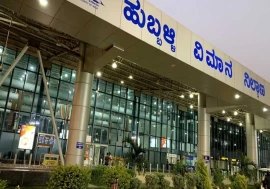
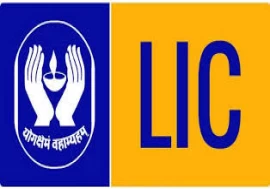
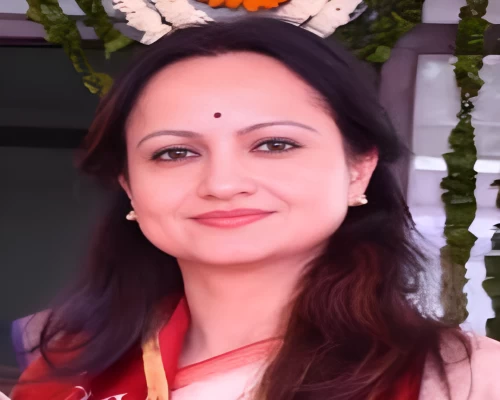
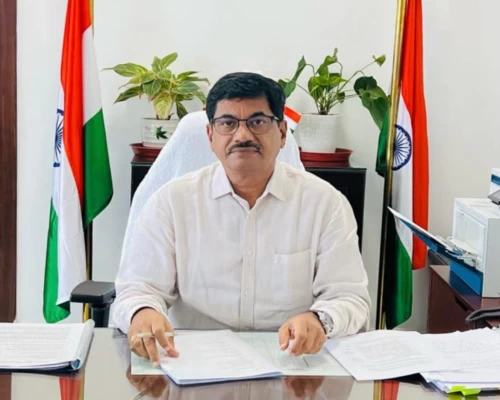
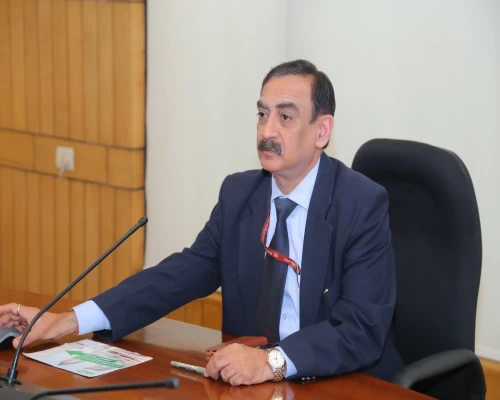
_500_x_400.webp)
